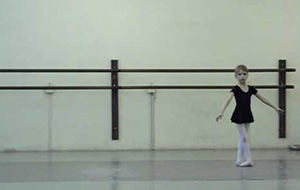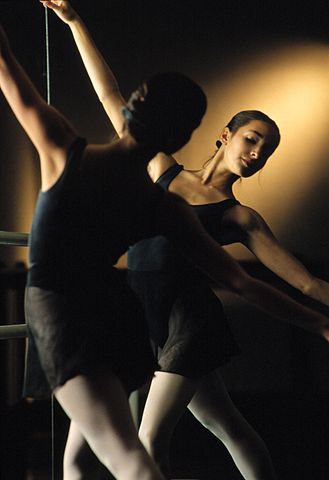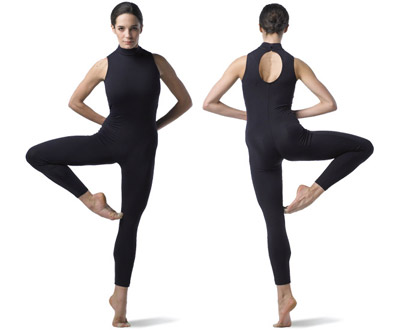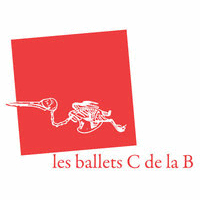 As children, parents and carers spend lots of time and money committing to dance lessons, even when they take joy from watching rather than doing. Taking children to dancing lessons requires energy and time, not to mention additional funds for competitions, costumes and extra performances. For a child, it is not until later that they see dance lessons in the same way, as an investment. Only then do they see that time, money and energy go to waste when they do not make the most of their dance lessons.
As children, parents and carers spend lots of time and money committing to dance lessons, even when they take joy from watching rather than doing. Taking children to dancing lessons requires energy and time, not to mention additional funds for competitions, costumes and extra performances. For a child, it is not until later that they see dance lessons in the same way, as an investment. Only then do they see that time, money and energy go to waste when they do not make the most of their dance lessons.
It is understandable that every dancer experiences a rut in their training, where they may not want to attend classes or feel they are not improving at the rate they should be. Despite this, it is not the dancers that stretch the most, sweat more or practice at home at all hours that necessarily get the most out of their dance classes either. The correct mental attitude is hugely important in dance training, to understand the purpose of dance for yourself and how to experience it in the best possible way.
When dancers become older, their adult freedom equates to a similar responsibility for themselves, be it getting themselves to classes, paying for their own training or beginning to assist with the teaching at the local dance studio. With these aspects comes heightened responsibility, for learning, fuelling and directing your dancing. It goes without saying that dancers must therefore arrive early and prepared for class, being focused and dedicated to the class, taking and applying corrections that are given to the class and spending time on the parts that need the most improvement, even if that means going back to basics.
Making mistakes is a large part of dance training; it will mean you will discover something new about the dancing body, through listening, watching, or error, even if this feels uncomfortable. Don’t forget to enjoy the process and thank your teachers for giving you the tools to better yourself and work hard in each class you take.

 Launched in 2010, Sadler’s Wells Summer University supports the development of professional dance artists interested in extending their dance practice. The first edition of the project ran successfully between 2010-2014 and the organisation is now recruiting for the second edition starting in Summer 2015. The Summer University graduates (2010-2014) was a combination of notable dance names, and the second batch looks set to mirror this result.
Launched in 2010, Sadler’s Wells Summer University supports the development of professional dance artists interested in extending their dance practice. The first edition of the project ran successfully between 2010-2014 and the organisation is now recruiting for the second edition starting in Summer 2015. The Summer University graduates (2010-2014) was a combination of notable dance names, and the second batch looks set to mirror this result. Taking place on 10th May, CDET’s Dance Careers Conference is not an event in the dance calendar to be missed. Hosted at Elmhurst School for Dance in Birmingham, the event offers a unique and informative one-day event providing high-quality, relevant and up-to-date information and guidance about further education, training and career opportunities in the dance and musical theatre industries.
Taking place on 10th May, CDET’s Dance Careers Conference is not an event in the dance calendar to be missed. Hosted at Elmhurst School for Dance in Birmingham, the event offers a unique and informative one-day event providing high-quality, relevant and up-to-date information and guidance about further education, training and career opportunities in the dance and musical theatre industries. Do you want to take your dancing to a professional level? As glamorous as it may seem, the life of a performer is a lot of hard work, pain and strict dedication to the goal. If you still wish to pursue a career in dance you must strive for it completely, as it requires a lot of passion and hard graft.
Do you want to take your dancing to a professional level? As glamorous as it may seem, the life of a performer is a lot of hard work, pain and strict dedication to the goal. If you still wish to pursue a career in dance you must strive for it completely, as it requires a lot of passion and hard graft. Despite it being the worst possible scenario for most dancers, sometimes dancing cannot come first in life. Whether this is because of personal, time-restrictive or financial circumstances or even public holidays, sometimes dance must be factored into a busy life, rather than the other way round.
Despite it being the worst possible scenario for most dancers, sometimes dancing cannot come first in life. Whether this is because of personal, time-restrictive or financial circumstances or even public holidays, sometimes dance must be factored into a busy life, rather than the other way round. As a dance student, you may wonder how you will ever remember every note, correction and suggestion you are given in class. You may even have more than one teacher; even two teachers means double the amount of notes you are given! You may have teachers who work by the same method, however they may teach in very different styles. Whilst this is beneficial to ’round’ you as a dancer, it may be tricky to keep track of everything you have to remember.
As a dance student, you may wonder how you will ever remember every note, correction and suggestion you are given in class. You may even have more than one teacher; even two teachers means double the amount of notes you are given! You may have teachers who work by the same method, however they may teach in very different styles. Whilst this is beneficial to ’round’ you as a dancer, it may be tricky to keep track of everything you have to remember. The first National College for the Creative and Cultural Industries is to be established at the High House Production Park in Thurrock, with backing from the government, it has been revealed. The college will open in September 2016 and will provide specialist training for the technical skills needed by the artistic industries.
The first National College for the Creative and Cultural Industries is to be established at the High House Production Park in Thurrock, with backing from the government, it has been revealed. The college will open in September 2016 and will provide specialist training for the technical skills needed by the artistic industries.
 A recent survey has revealed that 63% of UK residents consider a degree in Dance and the Performing Arts to be equally as valuable as any other theoretical subject, with a further 56% of parents stating they would take pride in their children pursuing a career in The Arts.
A recent survey has revealed that 63% of UK residents consider a degree in Dance and the Performing Arts to be equally as valuable as any other theoretical subject, with a further 56% of parents stating they would take pride in their children pursuing a career in The Arts. Founded for a dare in 1984, les ballets C de la B is mix of surrealism, slapstick and semiotics within the sphere of dance. It’s ethos has consequently made it one of the world’s most influential dance theatre companies. Since then it has become a company that enjoys great success at home (Belgium) and abroad. Over the years it has developed into an artistic platform for a variety of choreographers and the company still keeps to its principle of enabling artists from various disciplines and backgrounds to take part in this dynamic creative process.
Founded for a dare in 1984, les ballets C de la B is mix of surrealism, slapstick and semiotics within the sphere of dance. It’s ethos has consequently made it one of the world’s most influential dance theatre companies. Since then it has become a company that enjoys great success at home (Belgium) and abroad. Over the years it has developed into an artistic platform for a variety of choreographers and the company still keeps to its principle of enabling artists from various disciplines and backgrounds to take part in this dynamic creative process.